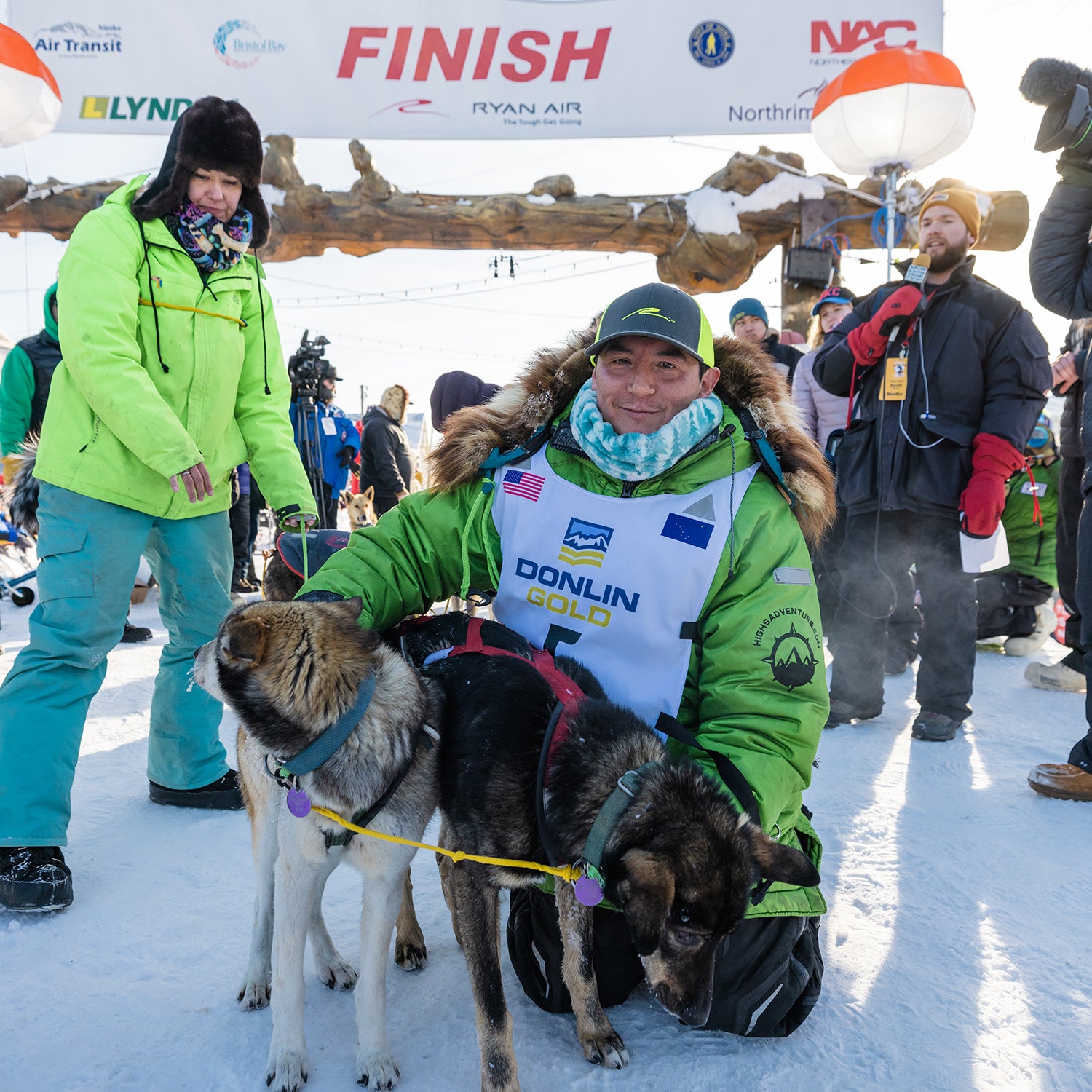“I guess you could say I was born to mush,” says Ryan Redington, an Inupiaq musher who grew up in the town of Knik, Alaska, not far from Anchorage. The first piece of evidence: his dad’s dad was Joe Redington, widely called the Father of the Iditarod, and the race’s founder. Then there’s his great-grandfather on his mother’s side, who carried mail to remote parts of Alaska via dog sled. Redington always knew he wanted to carry on the family legacy.
“I was fascinated with the dogs and their drive,” Redington says. “My brothers and I read all the newspaper articles about the race and the racers. We just lived and breathed it.”
Just after noon on March 14, Redington claimed his birthright when he and his team of sled dogs crossed the Iditarod finish line in Nome. He was the sixth member of his family to complete the race—but the first to win it, completing the 1,000-mile course in 8 days, 21 hours, 12 minutes, and 58 seconds.
Joe Redington dreamed up the original Iditarod, first run in 1973, alongside several other mushing enthusiasts who wanted to help preserve the tradition of dog-powered transit, which had faltered as snowmobiles proliferated in rural Alaska. They created a route that passed through dozens of Native villages, and tried to raise money for a championship pot. (Joe eventually funded it himself by refinancing his house.) Today, the course varies slightly from year to year, and prize money comes from sponsors, but the basic premise—a multiday push from Willow to Nome—endures.
The event draws spectators and competitors from around the world but remains deeply intertwined with Native Alaskan cultures and communities. “We get our food and supplies at the villages along the way, and it’s really special to have the support and excitement from these Native communities, and to get to represent them,” says Redington, the third Inupiaq to win the Iditarod. After his victory, he visited rural schools to talk about mushing.
Redington credits his success to his top-notch dog team, led by Sven and Ghost, who guided him through a whiteout. The two Alaskan huskies were awarded the Golden Harness, which goes to the best lead dogs and is voted on by the mushers in the race. He also attributes his success to his life partner, Sarah Keefer, who ran the dogs in training races before the Iditarod.
Now his sights are on a second title. “I’ll be back to defend my championship and keep proving my dogs are the best at the 1,000-mile distance,” he says.
Redington’s win comes during a challenging time for the Iditarod and sled dog racing in general. This year’s event saw the smallest field ever, with just 33 competitors (the average is nearly twice that). And the sport faces existential threats: inflation has increased operational expenses, and climate change continues to diminish the snowpack needed to travel by sled. But Redington remains optimistic.
His eight-year-old daughter and seven-year-old son are “very doggy kids,” he says. They have taken to kennel chores, training the dogs, and mushing, which gives him hope for the future.“ My family never pressured me to be a musher, and I’m not pressuring my kids. But boy, it’s a lot of fun, and [I feel] pride, watching them race and be around the dogs,” Redington says. “I love mushing, and the Alaskan husky, and I love being able to share that with them. I hope it can continue for many generations to come.”

